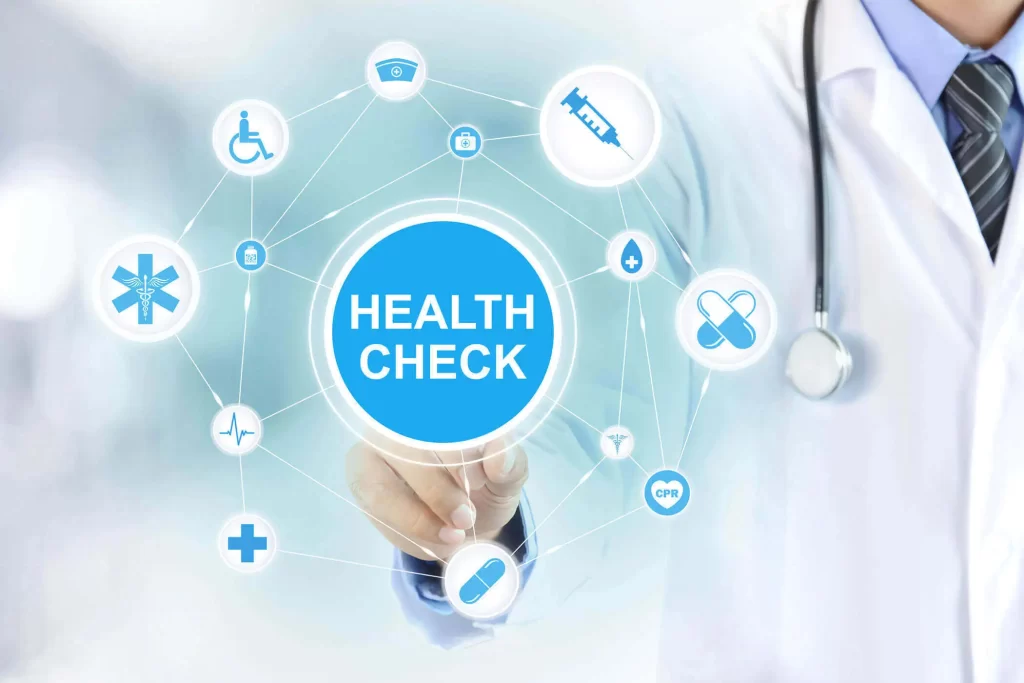The Significance of Routine Physical Examinations
Sometimes, in today’s busy environment, people forget to take care of their health. None the less, regular physicals are necessary to preserve health and spot any issues early. This blog examines the value of regular medical tests and how they contribute to a longer, healthier life.
Early Disease Diagnosis
Early disease identification is one of the main advantages of routine health checkups. Diabetes, heart disease, and cancer are just a few of the major illnesses that can manifest themselves symptomlessly. It’s possible that the sickness has progressed to a more severe stage by the time symptoms appear, making therapy less effective and more complicated. Early detection increases the likelihood of success and makes treating these issues easier. Periodic examinations can help.
Avoidance Is Better Than Treatment
A proactive approach to health is getting regular checkups. They enable medical professionals to recognize risk factors and take action to stop the disease before it starts. In order to prevent cardiovascular disease, your doctor might recommend medication or dietary changes if it is found that your cholesterol levels are high .By avoiding costly treatments for severe diseases, this preventive approach can help save long-term healthcare expenditures and promote overall health.
Keeping an eye on current health issues
Routine examinations are crucial for the monitoring and treatment of those who already have chronic illnesses like diabetes, asthma, or hypertension. Frequent visits enable medical professionals to monitor the disease’s progression, modify treatment regimens as necessary, and avert consequences. In addition to ensuring that any changes in your condition are promptly treated, routine monitoring helps you retain a greater quality of life.
Improving Lifespan and Well-being
Routine health examinations greatly enhance the general lifespan and quality of life. By staying in constant communication with your healthcare practitioner, you can obtain individualized guidance on upholding a healthy lifestyle. This includes advice on managing stress, eating right, exercising, and other aspects of general health. Following this advice can result in a happier and more satisfying life.
Constructing a Healthier Way of Life
Advice on healthy lifestyle practices, such as exercise, nutrition, and stress reduction, is frequently given during health examinations. During these consultations, you can discuss any health-related issues you may be having and receive expert advice that is customized to meet your individual needs. Your general health and well-being can improve significantly if you follow these tips.
Lowering the Cost of Healthcare
Frequent health checkups can help lower long-term healthcare expenditures, despite some’s opinion that they are a needless investment. By identifying and treating health conditions early on, you can prevent the need for later, more involved, and costly treatments. Preventive care and early intervention are far less expensive than treating severe diseases.
Calm
Lastly, routine medical examinations offer comfort. Stress and worry can be reduced by knowing you are actively monitoring your health and taking precautions to avoid illness. Knowing that your health is in capable hands, you can concentrate on other facets of your life with this piece of mind.

What Does a Full Body Health Check-Up Include?
A full-body health check-up is a comprehensive medical examination designed to assess your overall health status and detect potential health issues before they become serious. Here’s a detailed look at what typically constitutes a full-body health check-up.
1.Medical History and Physical Examination
- Medical History Review: The doctor reviews your medical history, including past illnesses, surgeries, medications, and family medical history.
- Physical Examination: A thorough physical examination checks vital signs such as blood pressure, heart rate, respiratory rate, and temperature. The doctor also examines the heart, lungs, abdomen, and other body parts to ensure proper function.
2. Blood Tests
- Complete Blood Count (CBC): Measures the levels of different components in your blood, including red and white blood cells, haemoglobin, and platelets.
- Blood Sugar Levels: Tests for diabetes or prediabetes by measuring fasting blood sugar levels and HbA1c.
- Lipid Profile: Assesses cholesterol levels, including total cholesterol, LDL, HDL, and triglycerides, to evaluate heart disease risk.
- Liver Function Tests (LFTs): Check for liver health and potential liver damage.
- Kidney Function Tests (KFTs): Measures waste products like urea and creatinine levels to assess kidney health.
- Thyroid Function Tests: The thyroid gland function is evaluated by measuring levels of thyroid hormones (TSH, T3, T4).
3. Urine Tests
- Urinalysis is a comprehensive urine test that analyzes the appearance, concentration, and content of urine to check for signs of infection, kidney disease, diabetes, and other conditions.
4. Imaging Tests
- Chest X-ray: A view of the heart, lungs, and chest bones is provided by this operation, which helps identify diseases of the heart, lungs, or infections.
- Ultrasound: This method detects abnormalities by imaging internal organs such the pancreas, liver, kidneys, and gallbladder using sound waves.
- Electrocardiogram (ECG/EKG): In order to diagnose cardiac conditions like arrhythmias or heart attacks, this test is intended to assess the electrical activity of the heart.
5. Specialized Tests
- Mammogram: A mammography is a screening tool for breast cancer in women.
- Pap Smear: For women, this test screens for cervical cancer.
- Prostate-Specific Antigen (PSA) Test: For men, this blood test screens for prostate cancer.
- Bone Density Test: Checks for osteoporosis by measuring bone strength and density, particularly in older persons and females.
6. Eye and Ear Examination
- Vision Test: Checks for vision clarity and detects issues like nearsightedness, farsightedness, or astigmatism.
- Hearing Test: Assesses hearing acuity and detects hearing loss or other auditory problems.
7. Other Assessments
- Body Mass Index (BMI): Measures body fat based on height and weight to determine if you are underweight, normal weight, overweight, or obese.
- Dental Examination: Evaluates oral health, including teeth, gums, and mouth, to detect dental issues like cavities or gum disease.
- Skin Examination: Checks for skin conditions, including signs of skin cancer or other dermatological issues.
Why Choose Primex Laboratories for health checkup
Primex Laboratories in Dwarka is proud to provide cutting-edge technology and facilities for all your body health test needs. Our highly qualified and experienced medical staff prioritizes providing you with the best care possible. Thanks to our extensive and adaptable health checkup packages tailored to your specific needs, you can easily prioritize your health.

